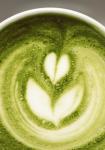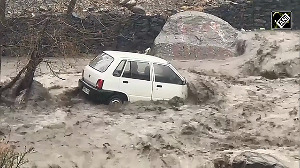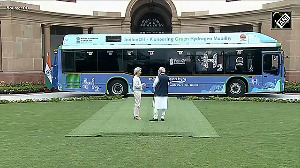After a week-long analysis, the National Security Guard and Forensic Laboratory of Rajasthan have confirmed that RDX was not used in the nine blasts that rocked Jaipur city on May 13.
Sources in the NSG as well as in the Forensic Laboratory said no traces of RDX were found from the places, which were rocked by the blasts in the Pink city and it mainly contained Neogel-90, an explosive comprising ammonium nitrate.
The Bomb Data Squad of the elite NSG after examining the remains of the splinters gathered from the spots said all the splinters, mainly comprising cycle ball bearings, flew only in one direction. A similar modus operandi of assembling the explosive material was used in Hyderabad blasts last year.
"The bombs were packed in such a way that it causes maximum casualty. It shows that good planning has gone into making of the bomb," a senior official of the NSG said.
The findings are in contrary to the initial assessment by Rajasthan Director General of Police A S Gill and Union Minister of State Sriprakash Jaiswal, who had claimed that RDX had been used in the blasts.
Gill had contented that 'one kg RDX' was used by the bombers.
Nine serial blasts had ripped through Jaipur on May 13 evening, leaving 65 dead and over 150 injured.
The causalities at the blasts showed that 90 per cent of them were caused by puncturing of vital organs like the skull and heart by metal balls that were packed into the explosive devices.
Neogel-90, an ammonium nitrate-based material, were covered with copper plates and it is hazardous when it comes in contact with metals like copper.
Investigations have pointed to the role of Bangladesh-based Harkat-ul-Jehadi Islami in the blasts.
Meanwhile, police has withdrawn seven sketches released by it in connection with the blasts saying fresh pictures will be drawn as a breakthrough eluded investigators even a week after the terror attack.






 © 2025
© 2025